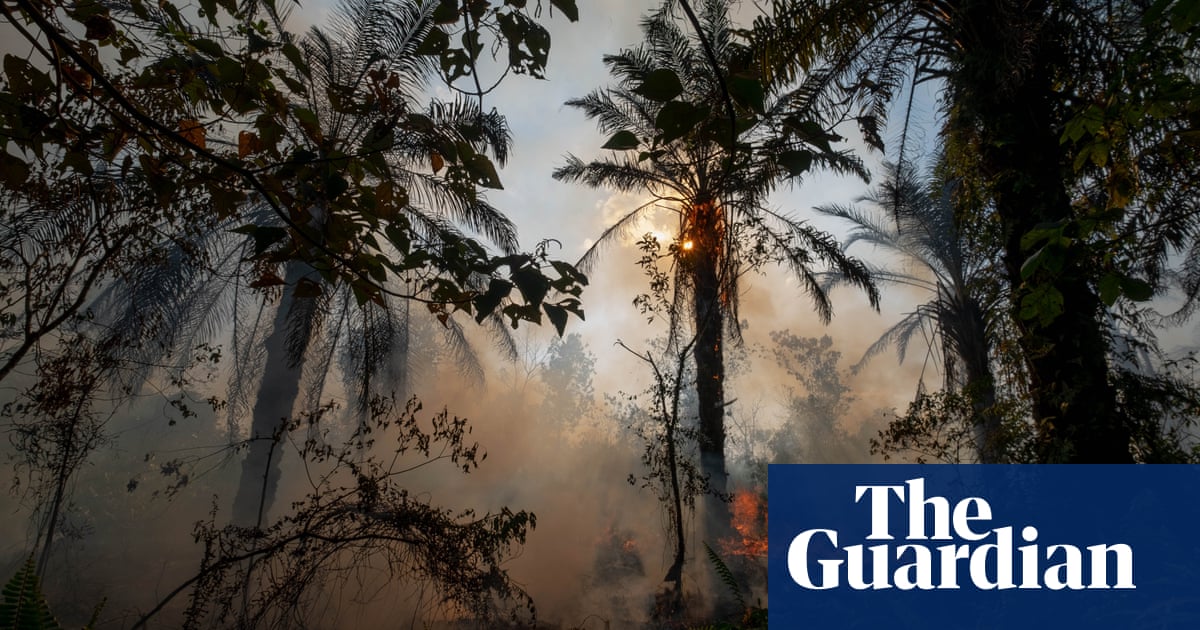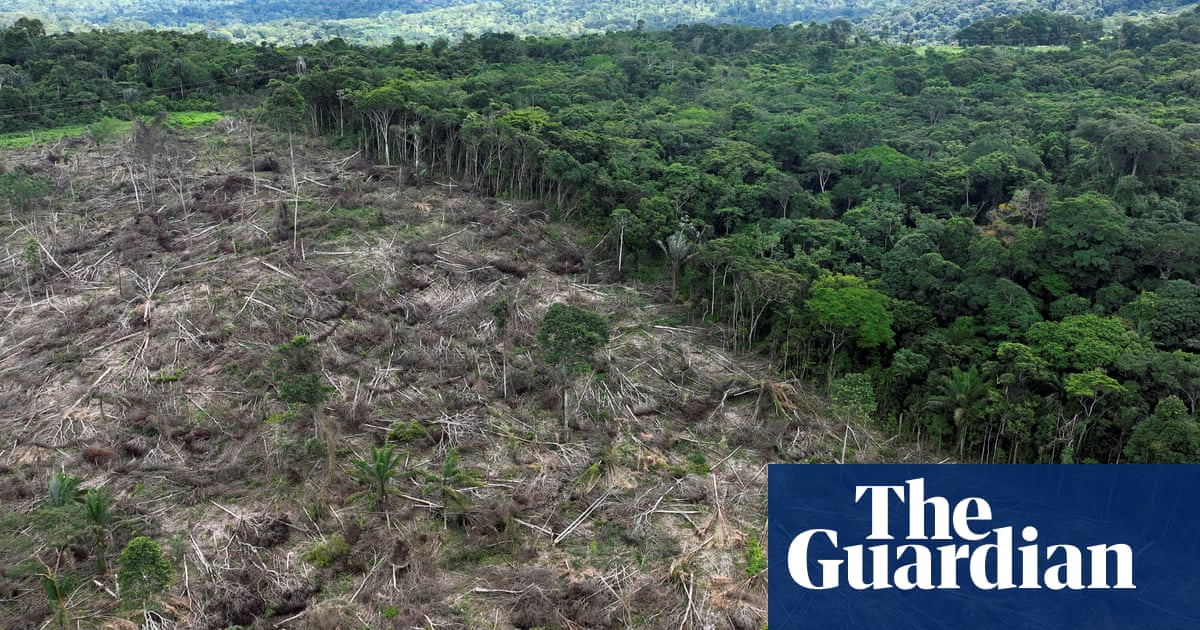
Sainsbury’s and five other European supermarkets have announced they will stop selling some or all beef products originating in Brazil because of concerns over links to deforestation in the Amazon rainforest and other ecologically important areas.
Sainsbury’s, along with Lidl Netherlands and others, took action after research into “cattle laundering” involving the meat conglomerate JBS. According to the news organisation Repórter Brasil, the company allegedly indirectly sourced cattle from illegally deforested areas.
A series of investigations by the Guardian and the Bureau of Investigative Journalism (BIJ) in recent years exposed deforestation linked to the Brazilian beef trade and highlighted the issue of cattle laundering, which occurs when animals raised on an illegally deforested plot of land are moved to a farm clear of deforestation to be fattened ahead of being trucked to an abattoir for slaughter and processing.
The true origin of the cattle is often hidden, and critics say the problem is widespread in Brazil and allows livestock from “dirty” farms linked to deforestation to be mixed with cattle from “clean” farms.
In the latest research, Repórter Brasil, working with the campaign group Mighty Earth, tracked deforestation-linked beef – including beef jerky, corned beef and fresh meat – from Brazil to European supermarket shelves.
In the case of Sainsbury’s, researchers found corned beef on sale that was processed at a JBS slaughterhouse in Lins, São Paulo. The abattoir had reportedly received supplies of cattle from a farm that sources animals for fattening from remote farms that have been officially sanctioned – and embargoed – for illegal deforestation in the Amazon rainforest.
Embargos are imposed for environmental violations, such as farmers or landowners cutting down trees illegally, and serve both as a punishment and protective measure to allow land to recover.
In a statement to the Guardian, a spokesperson for Sainsbury’s said: “The link between cattle farming and the destruction of ecosystems like the Amazon, the Cerrado, and the Pantanal is a complex issue, which we take extremely seriously. We have taken a range of steps together with our suppliers and the wider industry to try to address this, but not enough progress has been made.
“We are therefore committed to move our own brand corned beef sourcing away from Brazil to ensure Sainsbury’s corned beef product can be independently verified deforestation and conversion free in origin.”
JBS, which sources cattle from the Amazon for its massive global beef market, has annual revenues of $50bn (£37.5bn) and slaughters almost 35,000 cattle a day in Brazil alone. Its beef exports to mainland Europe have increased by a fifth in recent years despite the Amazon emergency.
In response to the investigation by Repórter Brasil, JBS told the Guardian it had “no tolerance for illegal deforestation, forced labour, misuse of indigenous lands, conservation units or violations of environmental embargos.” The company pointed out it had blocked more than 14,000 supplier farms “for failure to comply with our policies and standards and we will continue to take additional actions as warranted”.
It said it had also invested in a new blockchain-enabled system, which would allow monitoring of indirect suppliers and “achieve a completely illegal deforestation-free supply chain by 2025”. JBS claims to have checked the suppliers mentioned by Repórter Brasil and found them to be in compliance with JBS procurement policies.
In 2020, the Guardian, the BIJ and Repórter Brasil – for the first time – uncovered how JBS’s own trucks appeared to have transported cattle from a “dirty” ranch fined for deforestation to a supposedly “clean” ranch that in turn supplied JBS abattoirs. The BIJ also obtained livestock movement records which revealed that thousands of cattle had been trucked on the same route.
JBS disputed the findings. But the revelations directly contradicted the company’s claims that it was unable to monitor the more distant parts of its beef supply chain. The company subsequently announced it would launch the “green platform”, which could monitor the whole supplier system, including the problematic “indirect supplier” Amazon farms it had not, up to that point, been able to monitor.
The findings followed an earlier investigation that revealed the full extent of the UK’s involvement in deforestation in the Amazon. Nearly £1bn worth of beef supplied by JBS and other meat firms linked to deforestation had been directly imported to the UK in recent years, it was discovered.
The Amazon is a crucial buffer in stabilising the regional and global climate. Preserving the world’s rainforests, many experts say, is essential if a climate emergency is to be averted.
Yet between 1980 and 2005, deforestation levels reached 20,000 sq km a year. And international demand for beef is directly driving the problem: about 5,800 sq km of forest – an area four times the size of Greater London – is being felled annually in the Amazon and other areas of Brazil to be converted into pasture for cattle farming.
“This is a watershed moment because several huge supermarkets across Europe are saying an emphatic ‘No!’ to Brazilian beef over deforestation concerns,” said Mighty Earth’s Europe director, Nico Muzi. “This is not a vague commitment or a nice announcement that looks good in a press release. These are a series of concrete commercial actions taken by some of the biggest supermarkets in Europe to stop buying and selling beef from a company and a country that have made too many promises and have delivered too few results.”
“Christmas has come early for the forests in the Amazon, the Brazilian Cerrado savannahs and the Pantanal wetlands,” said Muzi.












